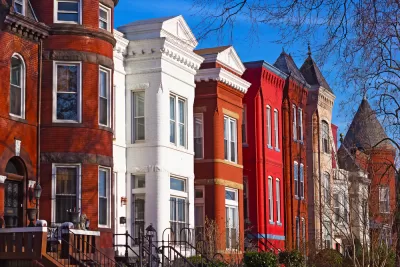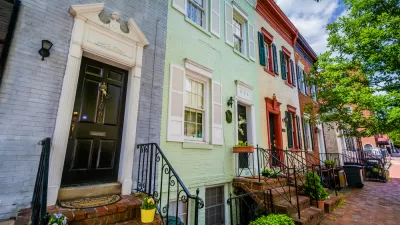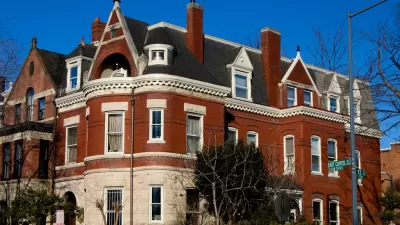David Alpert argues for a more rigorous definition for what is not historic. Without one, developers and property owners have no way to know what buildings can't or won't be given the designation.

Washington, D.C.'s Historic Preservation Office (HPO) has documented what makes a building historic, but they haven't done much to clarify what makes a building "not historic." To David Alpert, that's a problem. "It's clear that sometimes, the motivation of those seeking landmark protection is more about blocking development than honoring history," Alpert writes in Greater Greater Washington.
While Alpert concedes that preservation has a place in making a vital city, he worries that by not setting a floor, the HPO creates ambiguity for developers and may slow building. "A broader concern, with so many landmark applications and especially so many in exclusionary Tenleytown, is that almost any building tells the story of something," Alpert argues. Some buildings that were submitted for a historic designation were rejected, but there are so few that it's hard to know what the floor is for the consideration.
FULL STORY: Is anything old not “historic”? Preservation doesn’t have a good answer

Planetizen Federal Action Tracker
A weekly monitor of how Trump’s orders and actions are impacting planners and planning in America.

San Francisco's School District Spent $105M To Build Affordable Housing for Teachers — And That's Just the Beginning
SFUSD joins a growing list of school districts using their land holdings to address housing affordability challenges faced by their own employees.

The Tiny, Adorable $7,000 Car Turning Japan Onto EVs
The single seat Mibot charges from a regular plug as quickly as an iPad, and is about half the price of an average EV.

Seattle's Plan for Adopting Driverless Cars
Equity, safety, accessibility and affordability are front of mind as the city prepares for robotaxis and other autonomous vehicles.

As Trump Phases Out FEMA, Is It Time to Flee the Floodplains?
With less federal funding available for disaster relief efforts, the need to relocate at-risk communities is more urgent than ever.

With Protected Lanes, 460% More People Commute by Bike
For those needing more ammo, more data proving what we already knew is here.
Urban Design for Planners 1: Software Tools
This six-course series explores essential urban design concepts using open source software and equips planners with the tools they need to participate fully in the urban design process.
Planning for Universal Design
Learn the tools for implementing Universal Design in planning regulations.
Smith Gee Studio
City of Charlotte
City of Camden Redevelopment Agency
City of Astoria
Transportation Research & Education Center (TREC) at Portland State University
US High Speed Rail Association
City of Camden Redevelopment Agency
Municipality of Princeton (NJ)





























